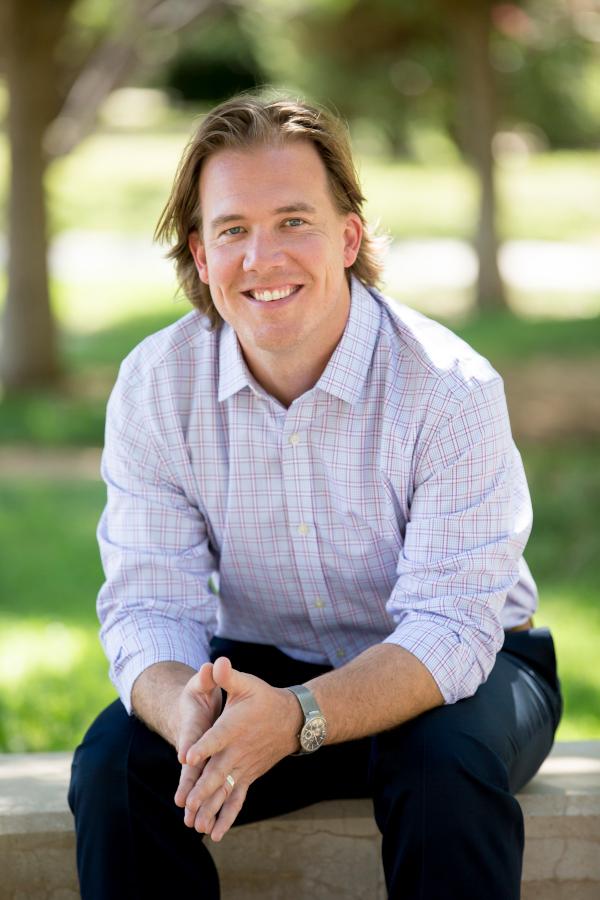A recent study led by Texas Tech’s Department of Biological Sciences and Natural Science Research Laboratory determined that certain genes are associated with the pathogens that infect chronic wounds and hinder the healing process.

Credit: Texas Tech University
In a first-of-its-kind study, researchers have determined that genetics may play a role in how wounds heal. Caleb Phillips, an assistant professor at Texas Tech University and director of the Phillips Laboratory in the Department of Biological Sciences, and doctoral student Craig Tipton led the study, “Patient genetics is linked to chronic wound microbiome composition and healing,” published Thursday (June 18) in the open-access, peer-reviewed medical journal PLOS Pathogens.
Phillips, who also serves as Curator of Genetic Resources at the Natural Science Research Laboratory’s (NSRL) Robert J. Baker Genetic Resources Collection, said the study determined that certain genes are associated with the number of bacteria and abundance of common pathogens in wounds. The collection of microbes, known as a “microbiome,” can determine how a wound heals and how long that process takes. The research also showed that the more diversity within a wound microbiome, the less time it took to heal.
Patients visiting Lubbock’s Southwest Regional Wound Care Center (SWRWCC) for the care of a lower-extremity infected wound consented to participation in the study and provided samples from their wound(s) and from a cheek swab. The study used microbiome profiling, genome fingerprinting, wet lab validation, imaging and model development to analyze the samples and data, and included researchers from Texas Tech, the Texas Tech University Health Science Center (TTUHSC), the SWRWCC and the University of North Texas Health Science Center at Fort Worth (UNTHSC).
“We showed that there are identifiable locations in people’s genome where, depending on their genotype, they tend to get infections by specific bacteria,” Phillips said. “The different genomic locations identified tend to be related in terms of the types of genes they are close to and may regulate. A working hypothesis emerging from the research is that genetic differences influencing genes encoding the way our cells interact with the environment and each other are important for infection differences.”
Though there is still work to be done before the research directly benefits patients, Tipton said the study is an important and promising step in that direction.
“Personalized medicine is a current hot topic in modern healthcare, where the goal is to identify inherent differences within individuals that may cause them to be impacted differently by disease and finding treatments that are well-suited and tailored to the individual and may contribute to better patient outcomes,” Tipton said. “Our project furthers two equally-interesting avenues of research with potential translation to the clinic. In one, it is our goal to develop robust genomic predictive models that could help physicians to determine a patient’s risk for chronic wound infection, particularly to specific bacteria.
“In the second, this work helps to inform how genetic variation in patients can influence microbiome-host interactions and wound infection pathogenesis. By further studying infection pathogenesis and how these complex microbial communities interact, it may be possible to improve existing therapies or to develop new therapeutic strategies altogether.”
Phillips said he looks forward to continuing his research at Texas Tech. His lab is developing a follow-up study that he hopes will collect enough information to create accurate predictive models. They also are working on a study exploring how a person’s location in the U.S. shapes differences in chronic wound microbiomes.
“Texas Tech provides good support for research and is continually working for growth,” Phillips said. “My research, like that of most others, has been generally enhanced by the academic freedom provided at the university. The Natural Science Research Laboratory is a premier Natural History Collection, and the samples archived at the Genetic Resources Collection have allowed me to design studies such as this one that would otherwise not have been possible. The hard work and creativity of doctoral student Craig Tipton were essential to the success of this project, as was collaboration with the laboratories of Nicole Phillips at UNTHSC and Kendra P. Rumbaugh at TTUHSC, Professor Todd Little in the Texas Tech College of Education, the SWRWCC and the NSRL.”
###
The team of researchers included:
- Department of Biological Sciences and the NSRL: Phillips and Tipton, who led the project from conception to experimental design and conducted data analysis, wet lab validation and structural equation modeling and wrote the final paper. The NSRL also assisted with curation and availability of samples and data curation.
- SWRWCC: Dr. Randy Wolcott, founder; technical director Nicholas E. Sanford and information technology network administrator Clint Miller, who assisted with sample collection and data curation.
- TTUHSC: Rumbaugh, a professor in the Department of Surgery and co-director of the Burn Center of Research Excellence; and post-doctoral researcher Derek Fleming, who conducted mouse model histological imaging.
- Department of Microbiology, Immunology and Genetics at the UNTHSC: Nicole Phillips, assistant professor and director of the N. Phillips Lab; Gita Pathak and Talisa K. Silzer, who were doctoral students during the project in the N. Phillips lab; and post-doctoral researcher Jie Sun. The group assisted with patient genome fingerprinting.
- Texas Tech Department of Educational Psychology and Leadership in the College of Education and Optentia Research Focus Area at North-West University in Vanderbijlpark, South Africa: Little, who assisted with structural equation modeling.
Visit Texas Tech Today to read more about this research: https:/
To read the complete study, visit the PLOS Pathogens website: https:/
Media Contact
Amanda Castro-Crist
[email protected]
Original Source
https:/
Related Journal Article
http://dx.




